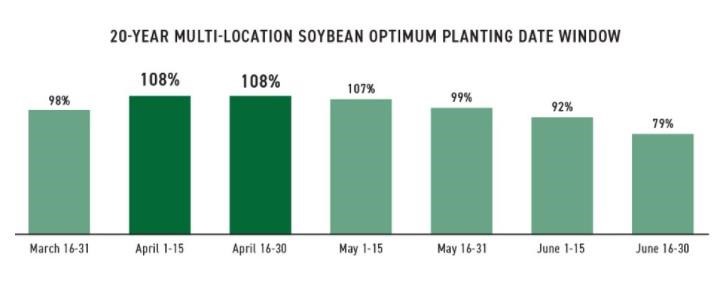By Sonja Begemann
Because soybeans are exposed to fungi, disease, insects and nematodes in a cooler and often wetter part of the season, seed treatments could prove invaluable. While the majority of soybeans do have some kind of treatment – often downstream – there’s opportunity to increase sales to non-users or potentially increase rates in higher-risk areas.
“Obviously certain root rots and diseases become a bit of a challenge, so seed treatments play an important role,” says Don Kyle, Corteva Agriscience soybean breeding zone evaluation lead. “I always encourage people if you’re going to plant early, use seed treatments at their full rate.”
Early-season diseases put the plant at a strong disadvantage, even if the disease doesn’t physically appear until later in the season such as sudden death syndrome (SDS).
“The earlier you plant, the higher SDS risk we seem to have,” says Shawn Conley, University of Wisconsin Extension soybean scientist. “There are at least two seed treatment packages that are effective against SDS, and the commercially available genetics show a range of tolerances with some cultivars showing genetic resistance, so it’s good to incorporate both options available to farmers.”
Companies that have options to increase fungicide, insecticide or add-on nematode or other actives to seed treatments could find early planted soybeans are a great opportunity for a new sale.
The Best Time to Plant Soybeans
Beck’s Hybrids has performed research on early-planted soybeans for 20 years in the Practical Farm Research program. The company says yield benefits come from increased nodes and pods created over the longer stretch of the legume’s life.

Source : SEEDWORLD